Upcycling | Bench for Mariri
In Niassa we up-cycled plastic waste into a bench overlooking the Lugenda river. The nearby village Mbamba is littered with empty gin bottles and other plastic waste and Niassa Lion Project asked if we knew what could be done about this. We went to the village and together with the local kids we collected 370 bottles and stuffed them with plastic. With these eco-bricks we built a beautiful bench.
How did we do it? The pictures below take you through the whole process.
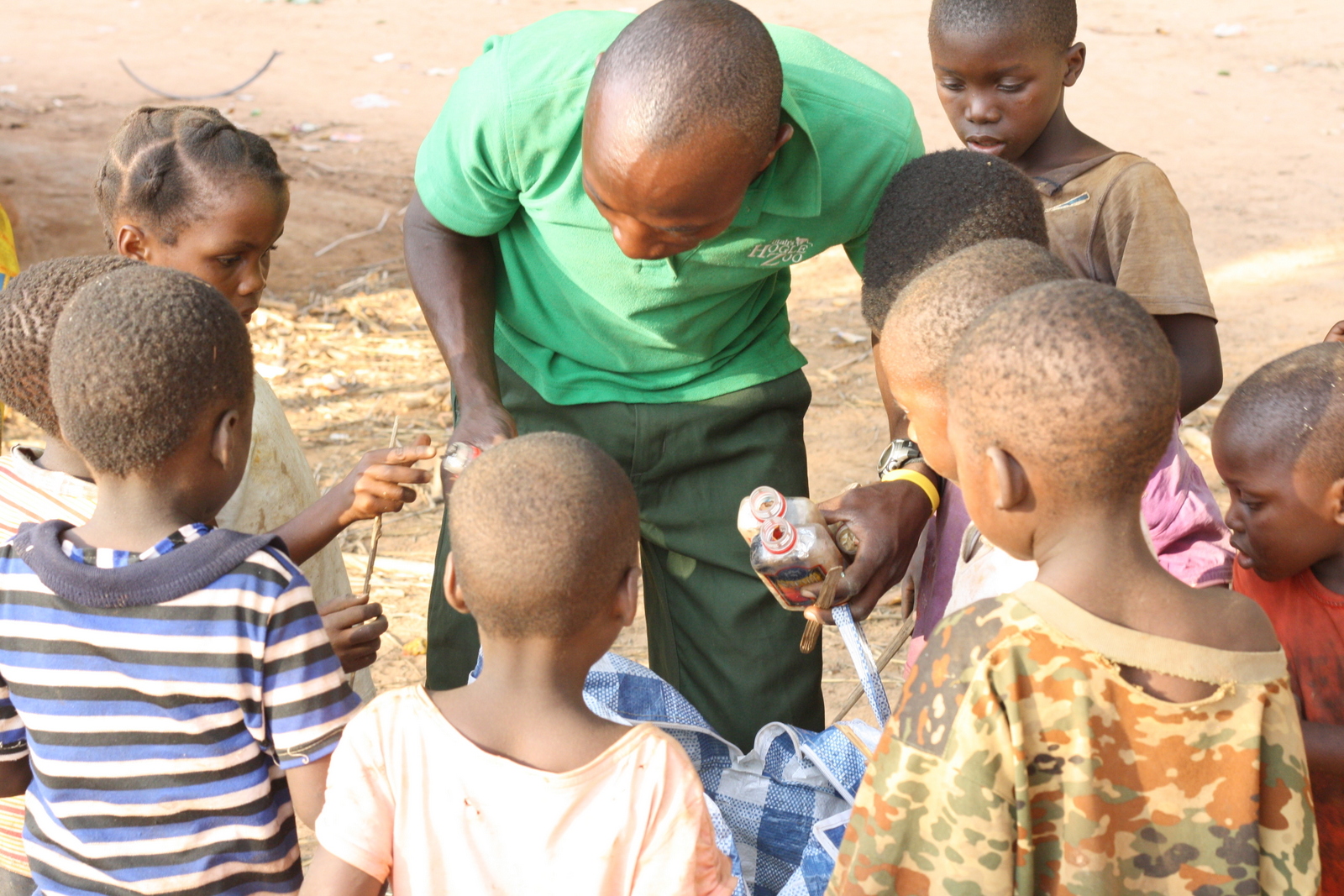
Pedro, who grew up in Mbamba himself, rallied the kids together and explained what we would like them to do. Before he was finished talking, the first kids came up and handed over empty gin bottles. The kids came from everywhere and also their mums and grannies brought us hands full of bottles.
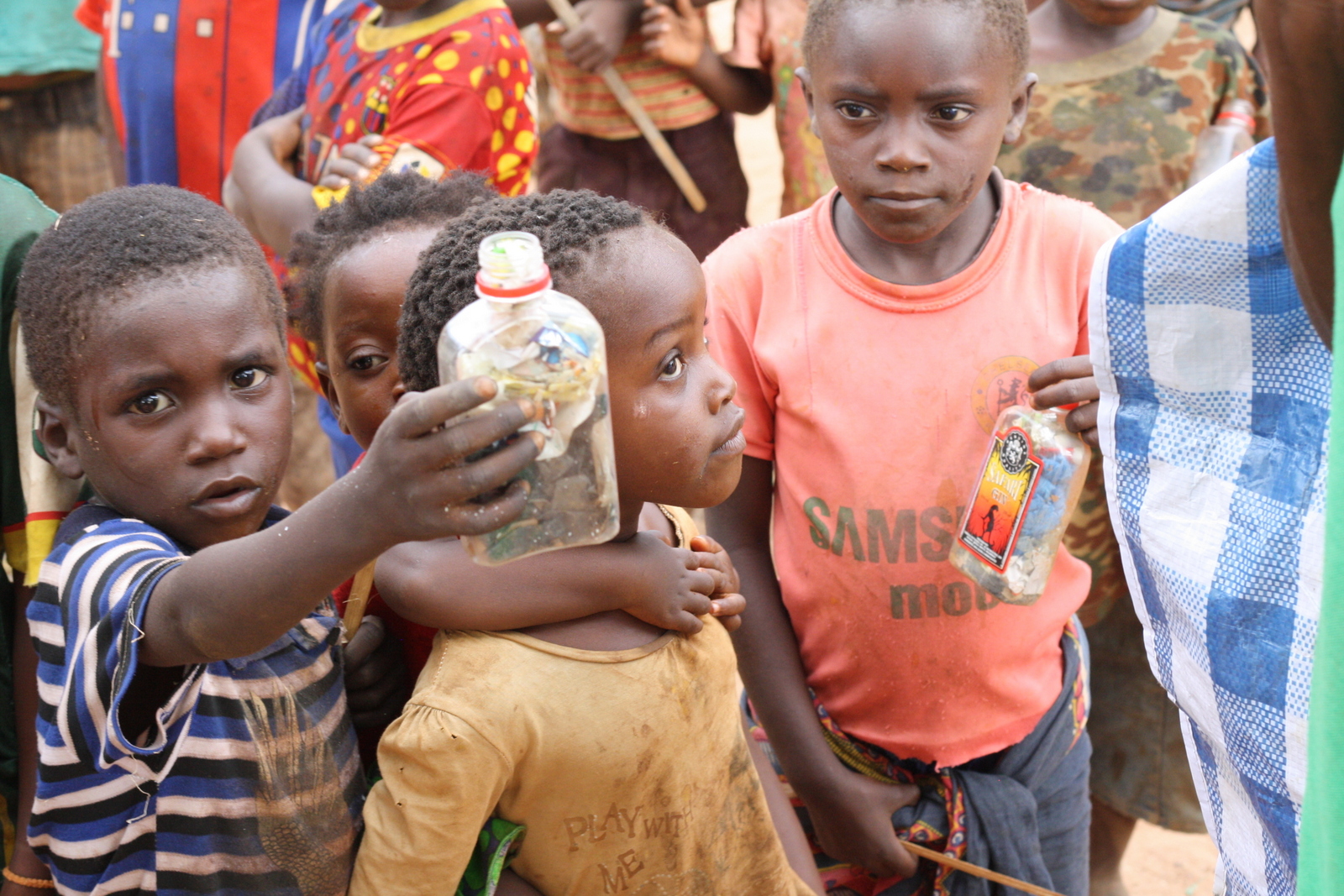
Soon it was time for the next step: stuff the bottles with non-biodegradable waste that was lying around. Being from Mbamba, Pedro knew exactly where to find the trash. One of the hot spots was around the market. We showed the kids how to stuff the bottles and they picked it up very quickly, going around cleaning the streets and vegetable gardens of the village.
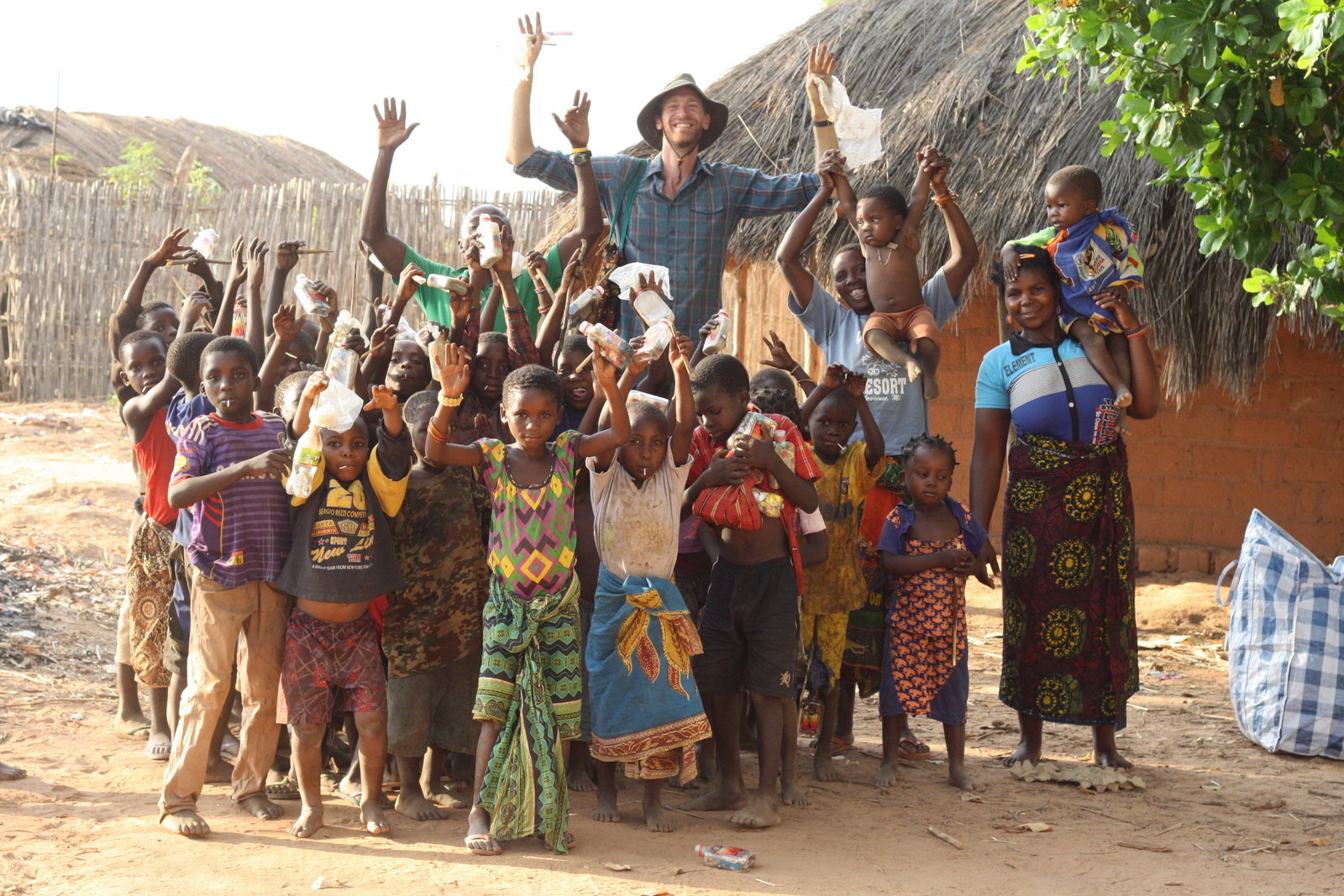
After a hard day's work we celebrated together by posing for a picture. The next day we went back to collect more bottles and more waste.
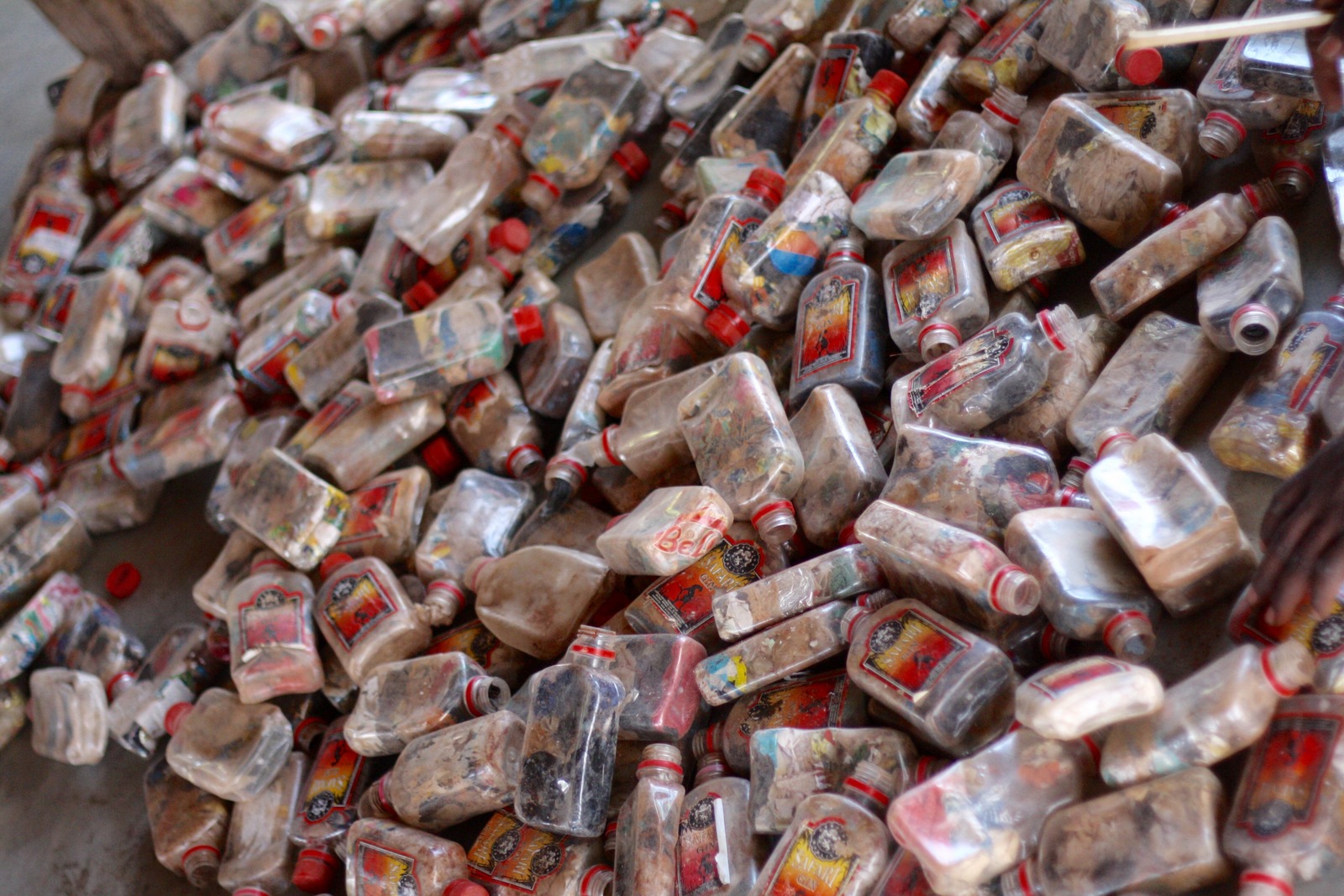
After one afternoon and one morning we collected the staggering amount of 370 gin bottles. It is incredible how that type of bottle was lying around everywhere in this particular town, while we, after our first visit weren't sure whether eco bricking would be a good idea for Mbama, given the fact that most plastic bottles are re-used for other purposes. This illustrates how important it is to be guided by local people, who know the local possibilities and problems, before setting up any project.
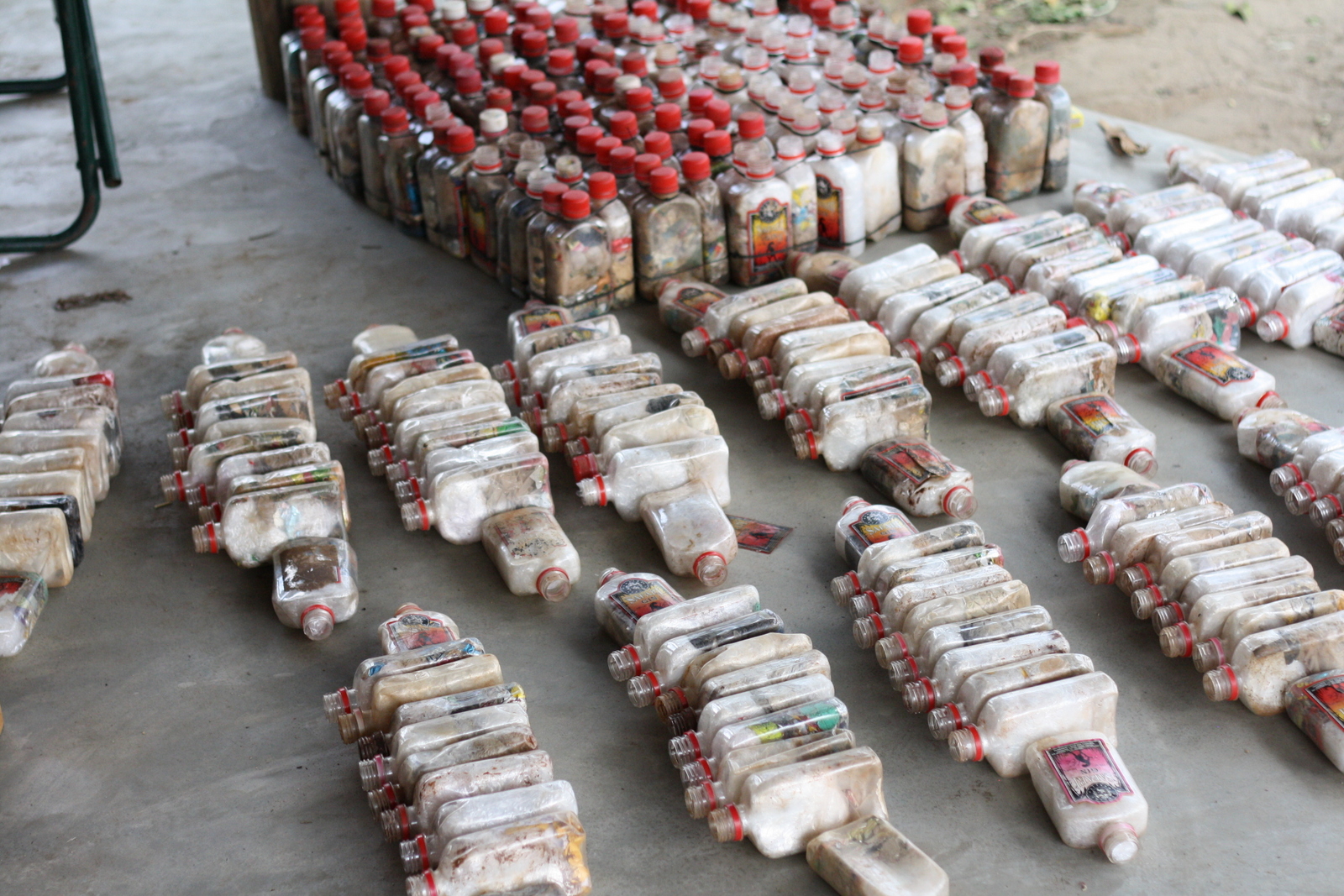
After collecting and stuffing, we sorted all the bottles to see how much we had and to test how well they were stuffed, stuffing them even tighter if we could.
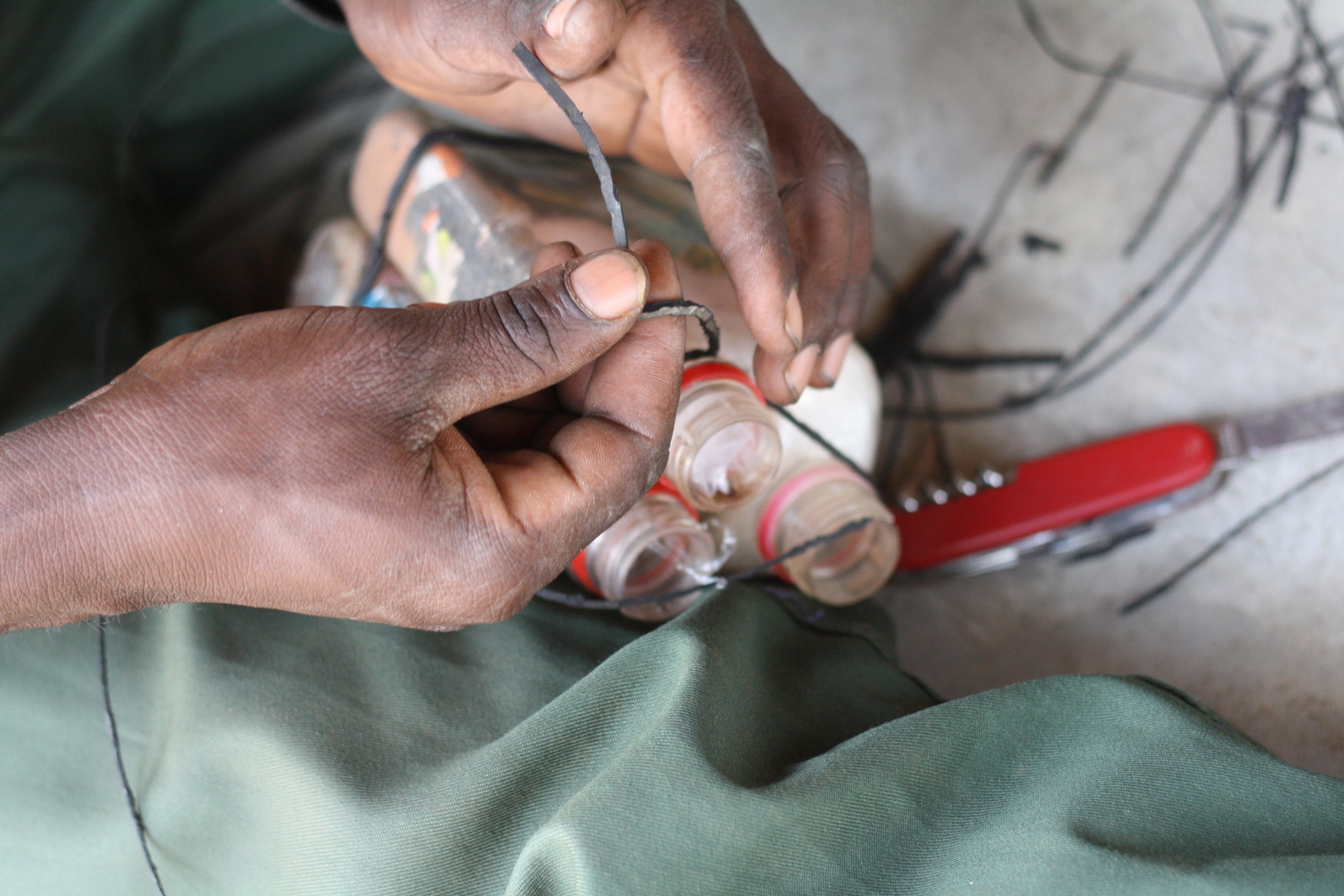
We bound the bottles together in sets of three, creating a solid building block. We used threads made of old car tires, a common form of recycling in Niassa.
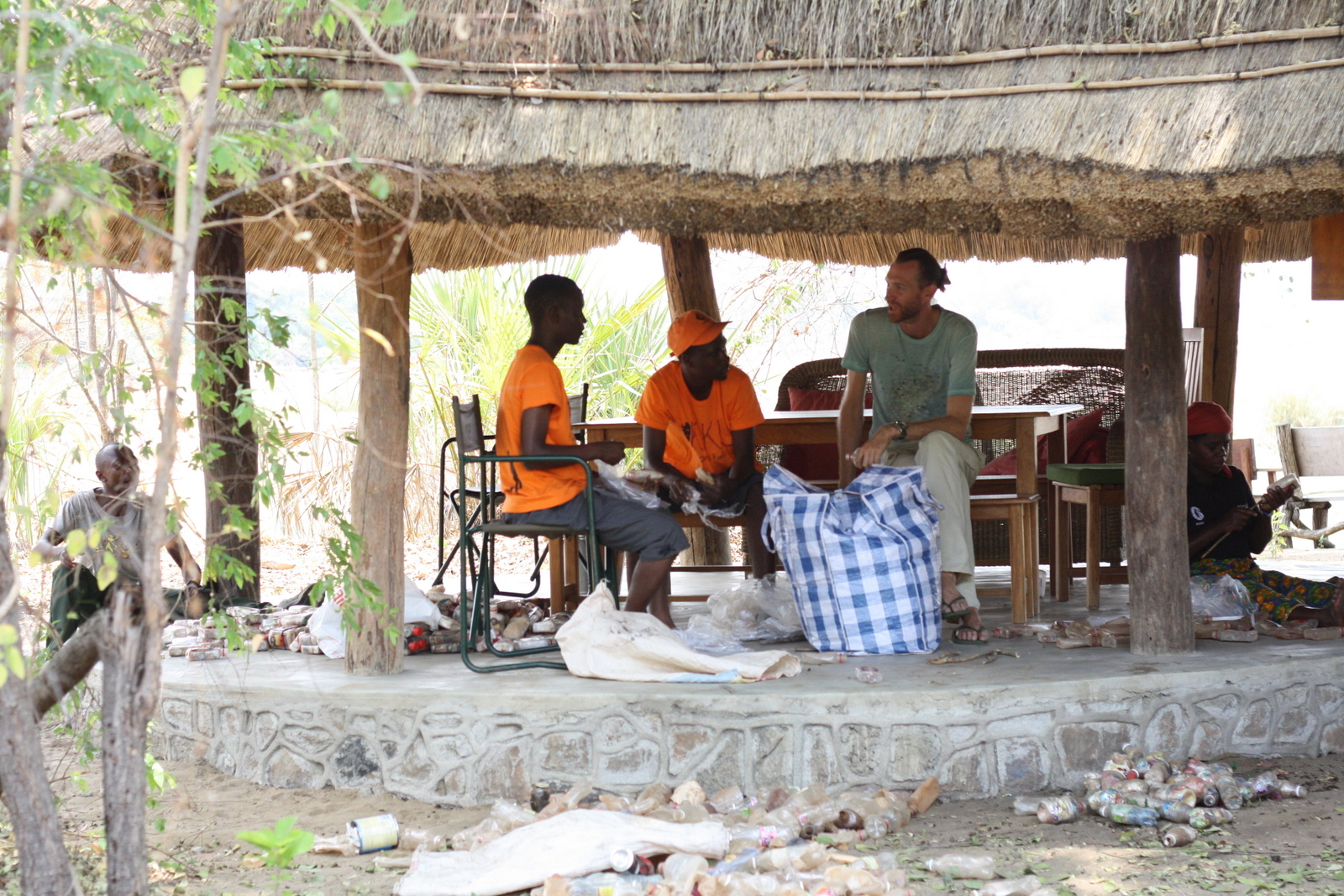
After counting how many eco-bricks we had, we realised we still had quite a lot of bottles that needed (more) stuffing. Together with the team at Mariri, we spent hours stuffing more waste into bottles, chatting away about all sorts of stuff.
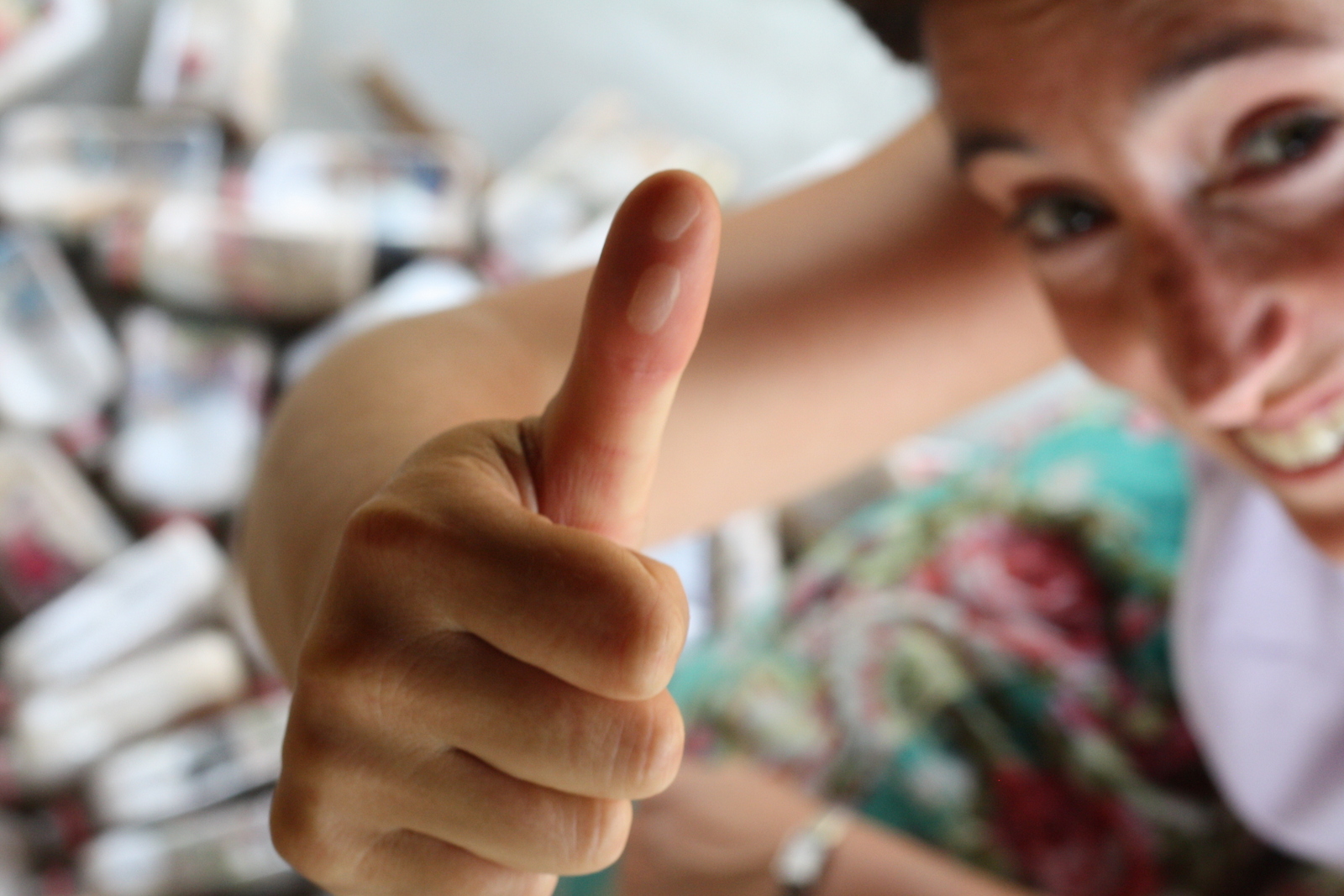
We used wooden sticks for stuffing the bottles and we worked until we had blisters to show for it.
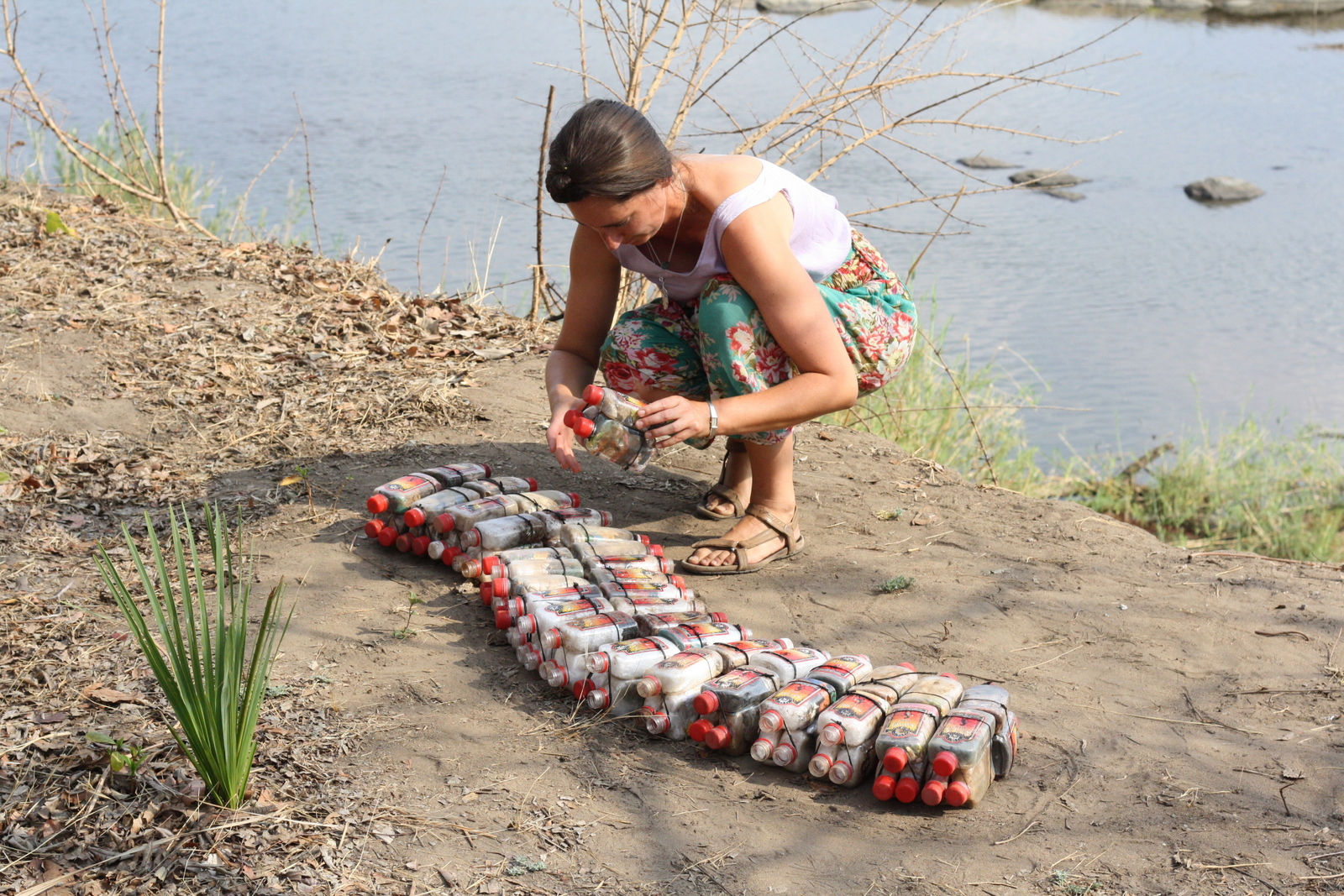
With all the bottles ready we set out to look for a nice spot along the Lugenda river to make the bench. Willemijn made a beautiful swirl shape, inspired by the flow of the river with all its bends.
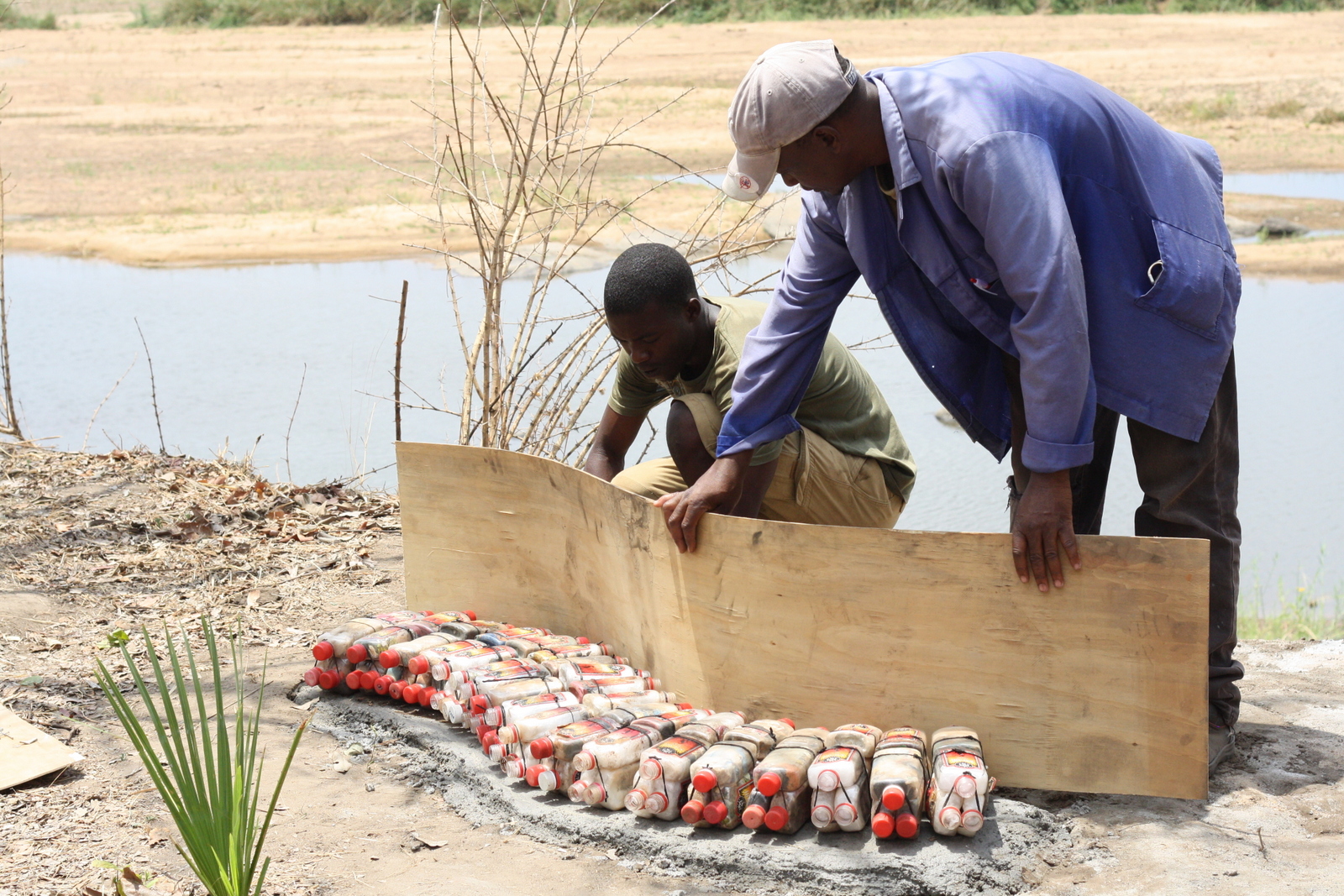
Temba, the building supervisor of Mariri Environmental Center, came up with the idea to use flexible plywood as a casing, so we would be able to poor in the mixture of clay, sand and cement.
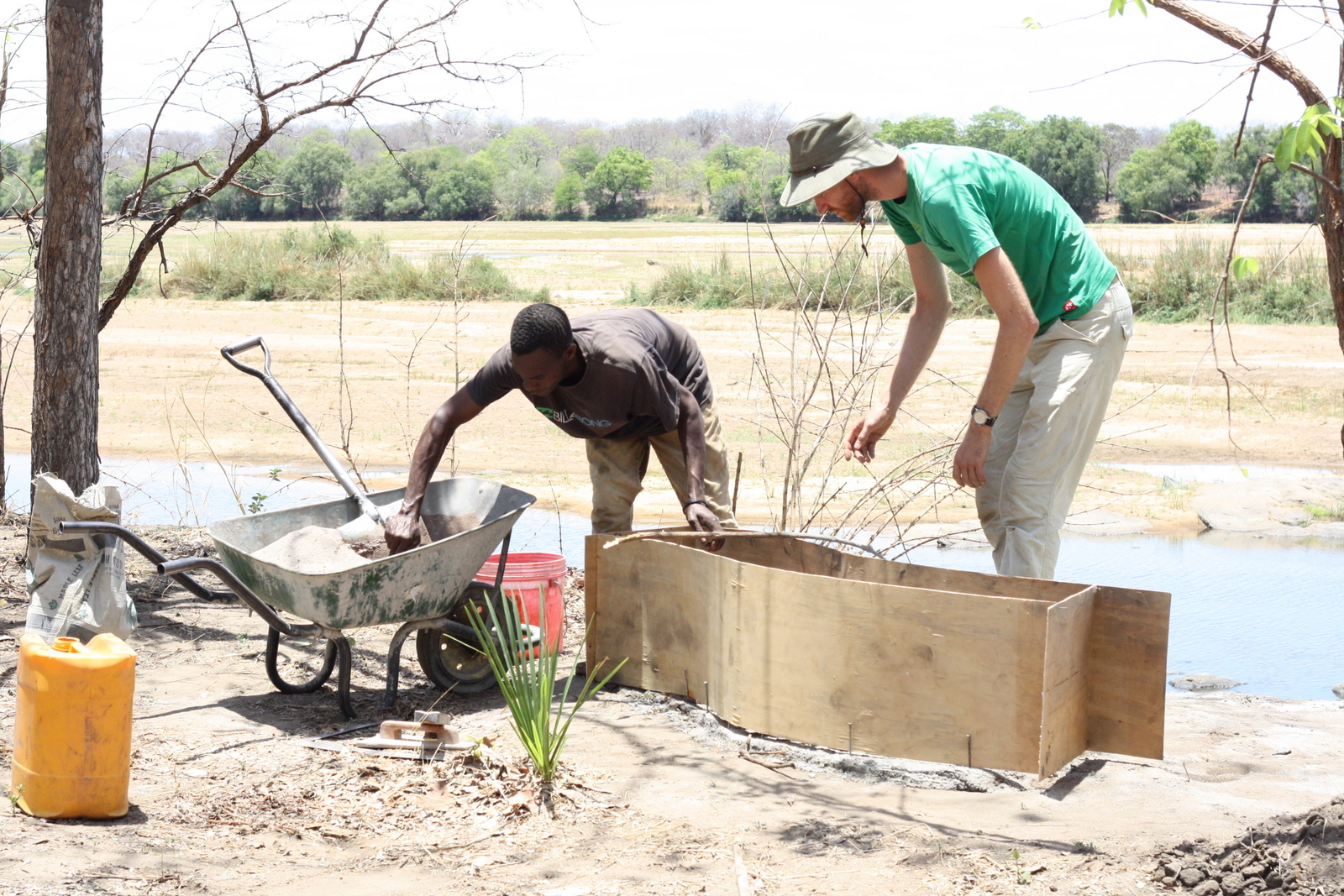
One of the master builders in Mariri came to do the actual building.
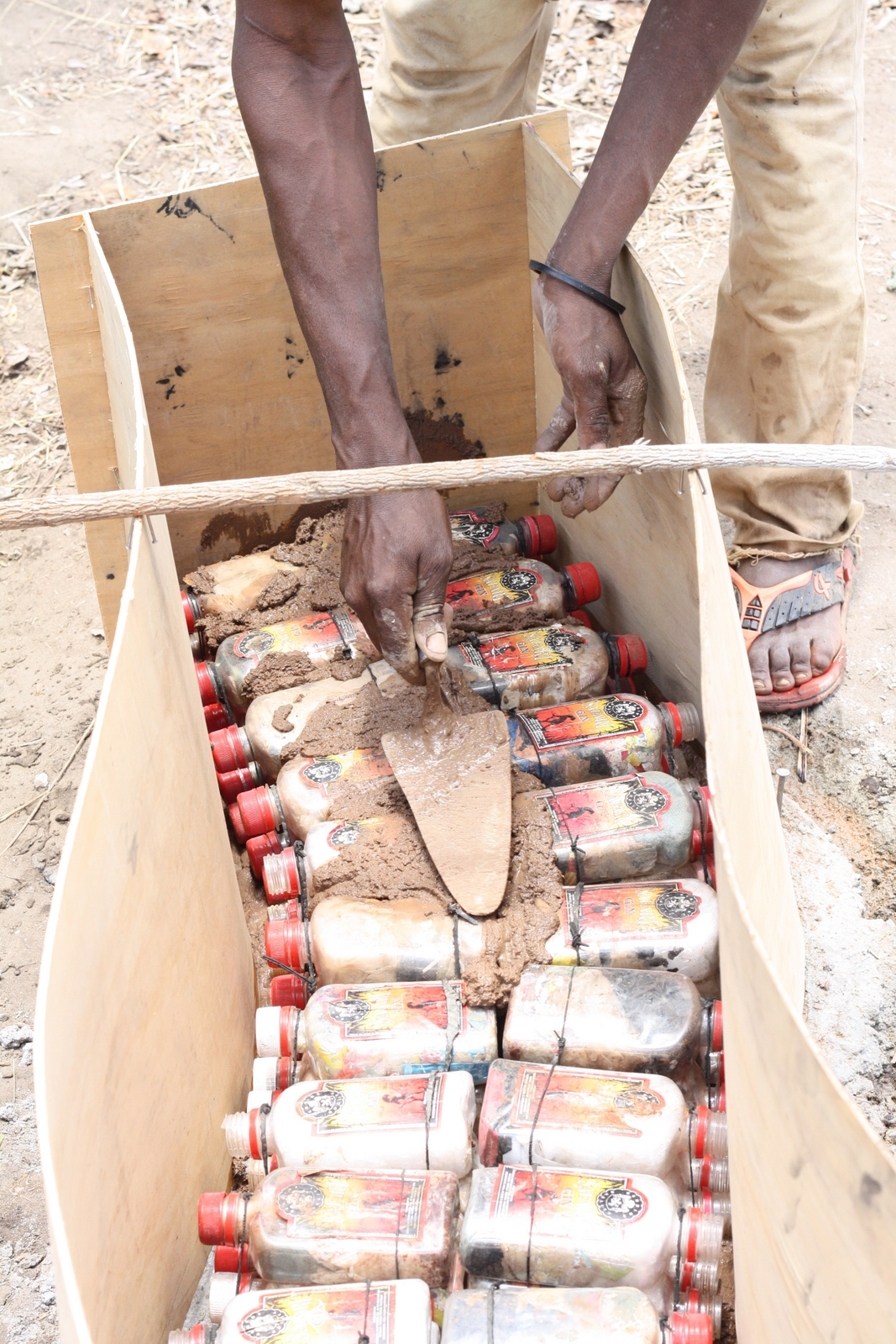
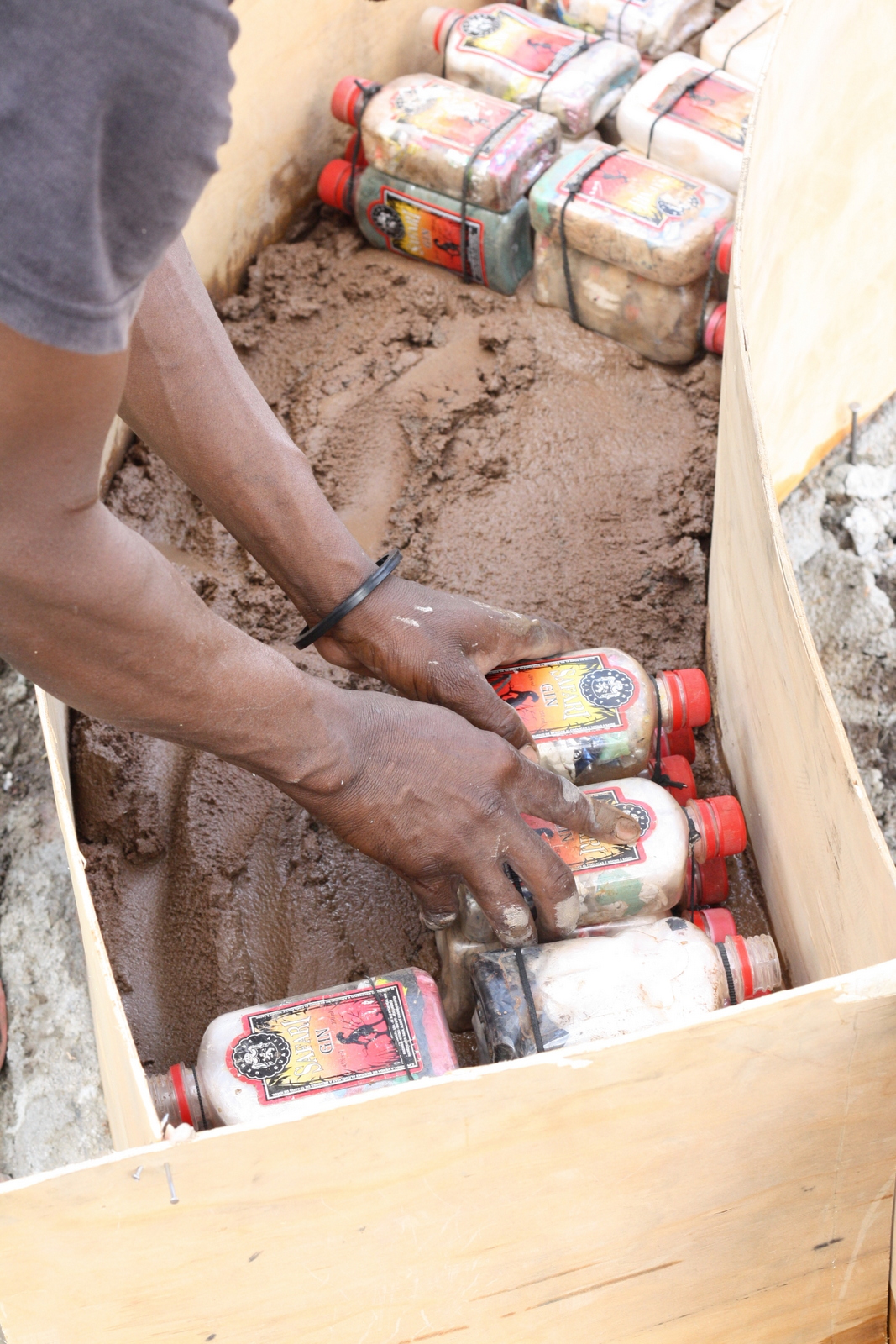
He carefully filled up the holes between the bottles with the clay mixture, using his trowel to scoop, fill and smoothen. It was a pleasure to watch him work.
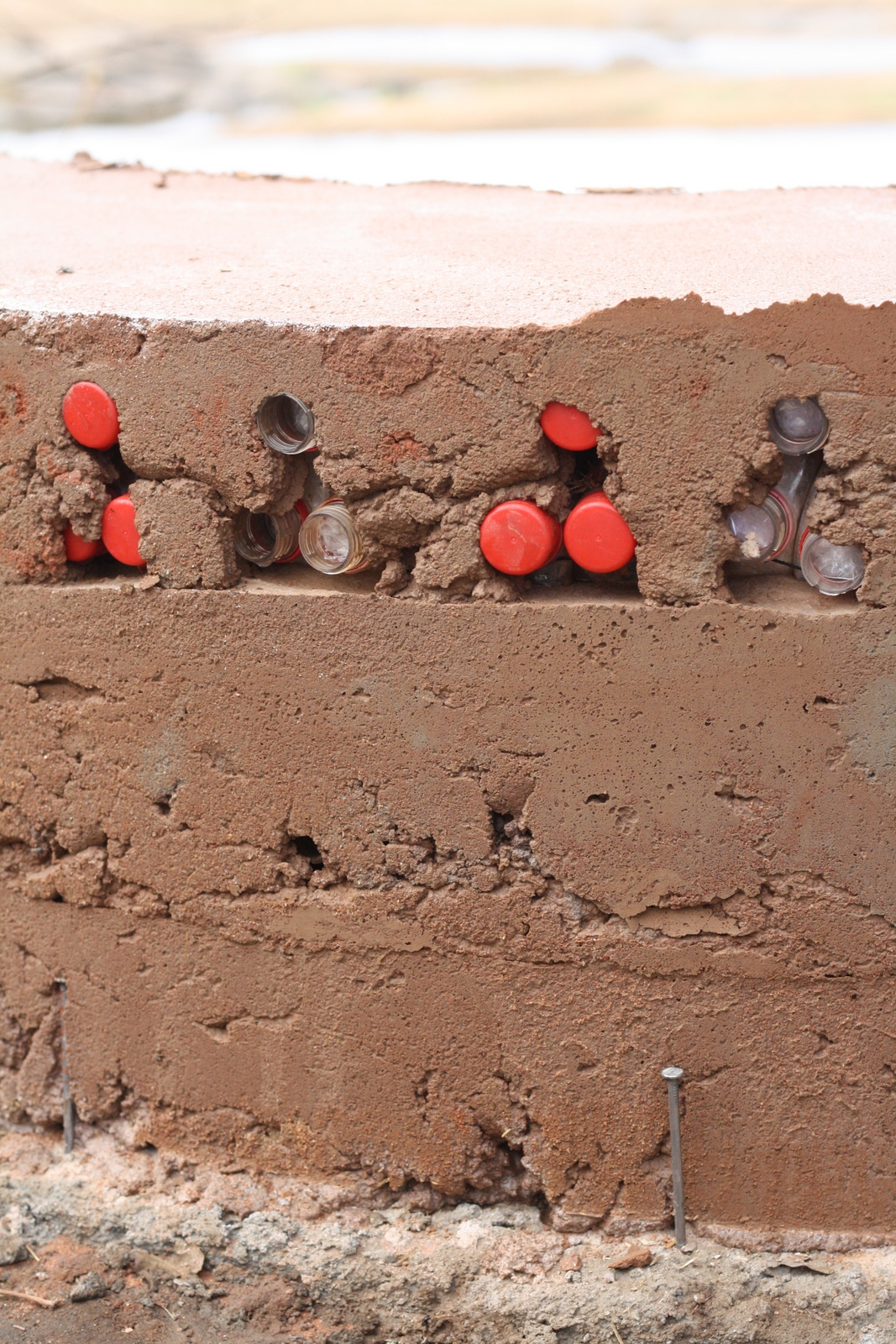
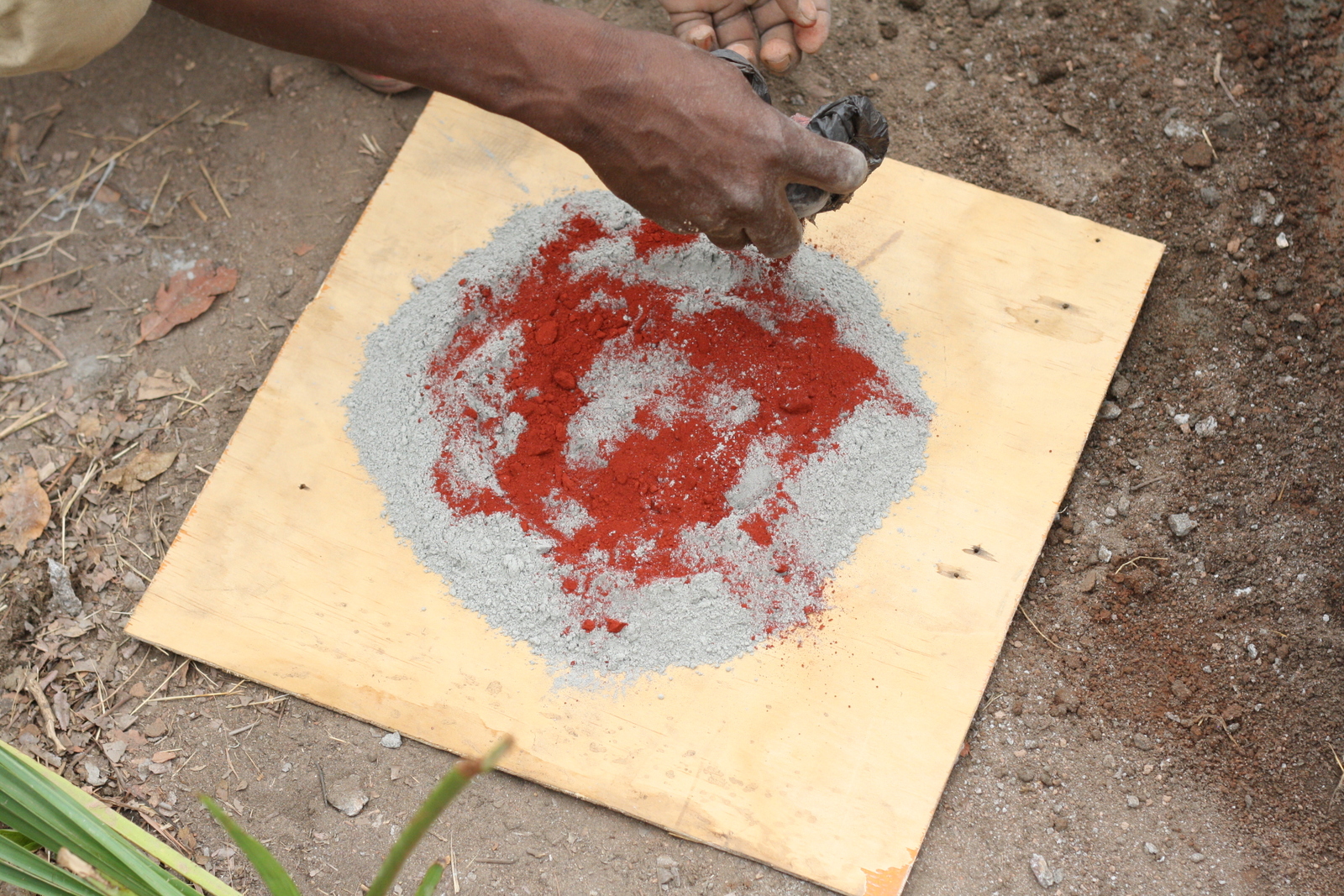
After the third layer was done, we let the bench rest to harden for one night before we took off the casing. At some places the bottles still showed, and the bench would be finished of with a final layer of clay mixture, before covering it with coloured plaster.
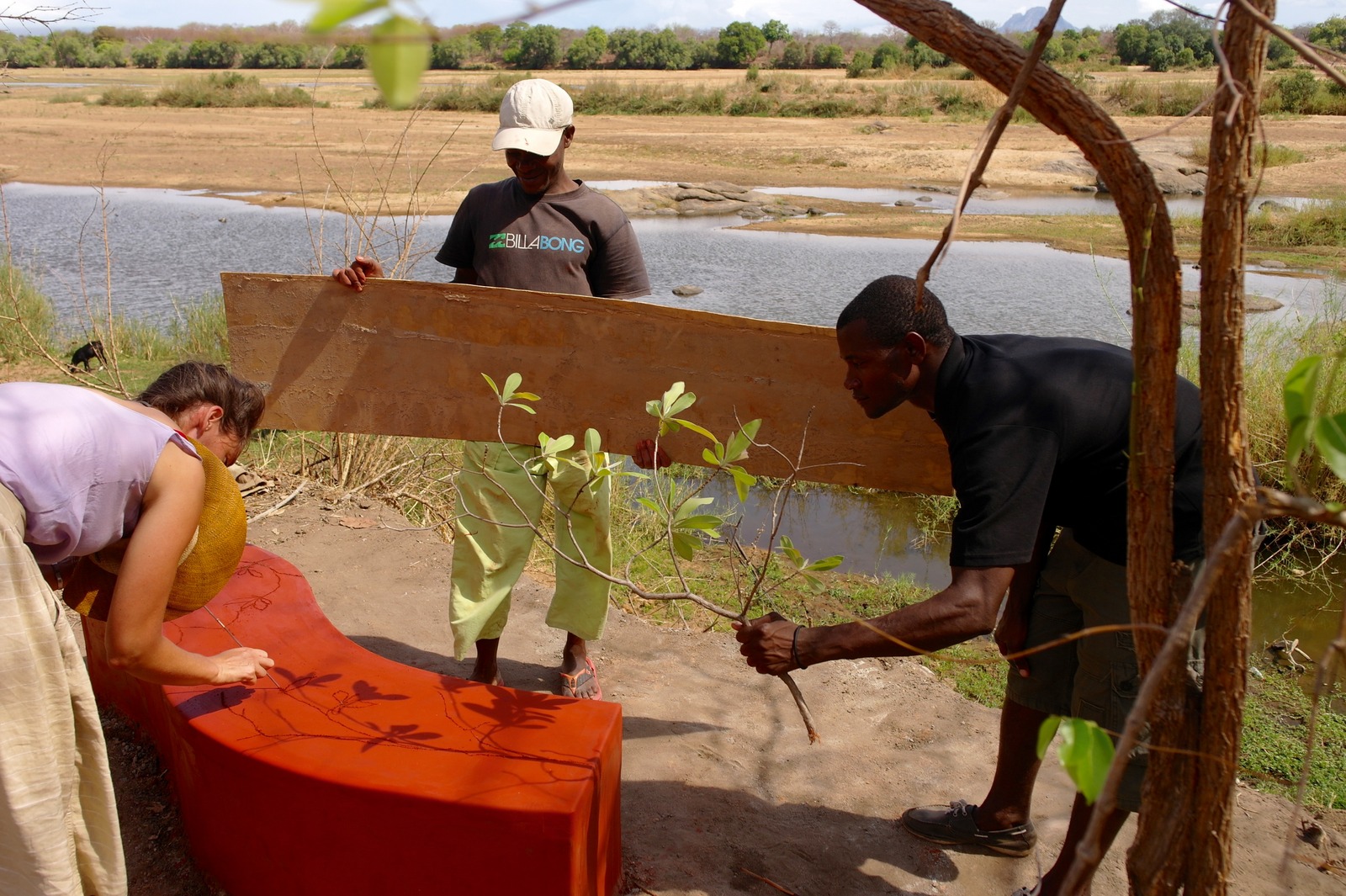
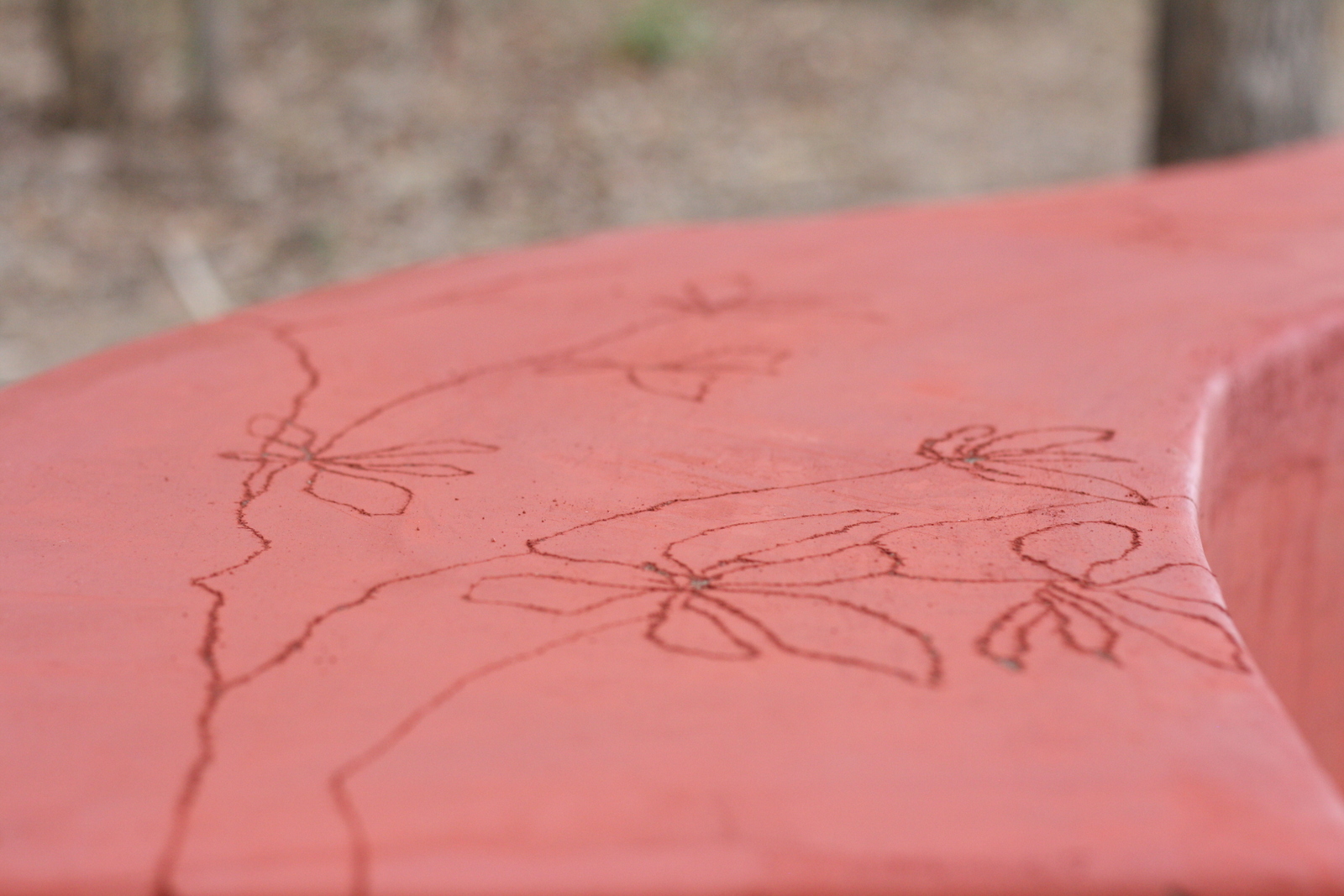
With the plaster still soft and wet, it was time for Willemijn to apply the finishing touch. Inspired by the sharp shadow of a tree next to the bench, she took a branch of the same tree and carved out the shape of the leaves in the bench.
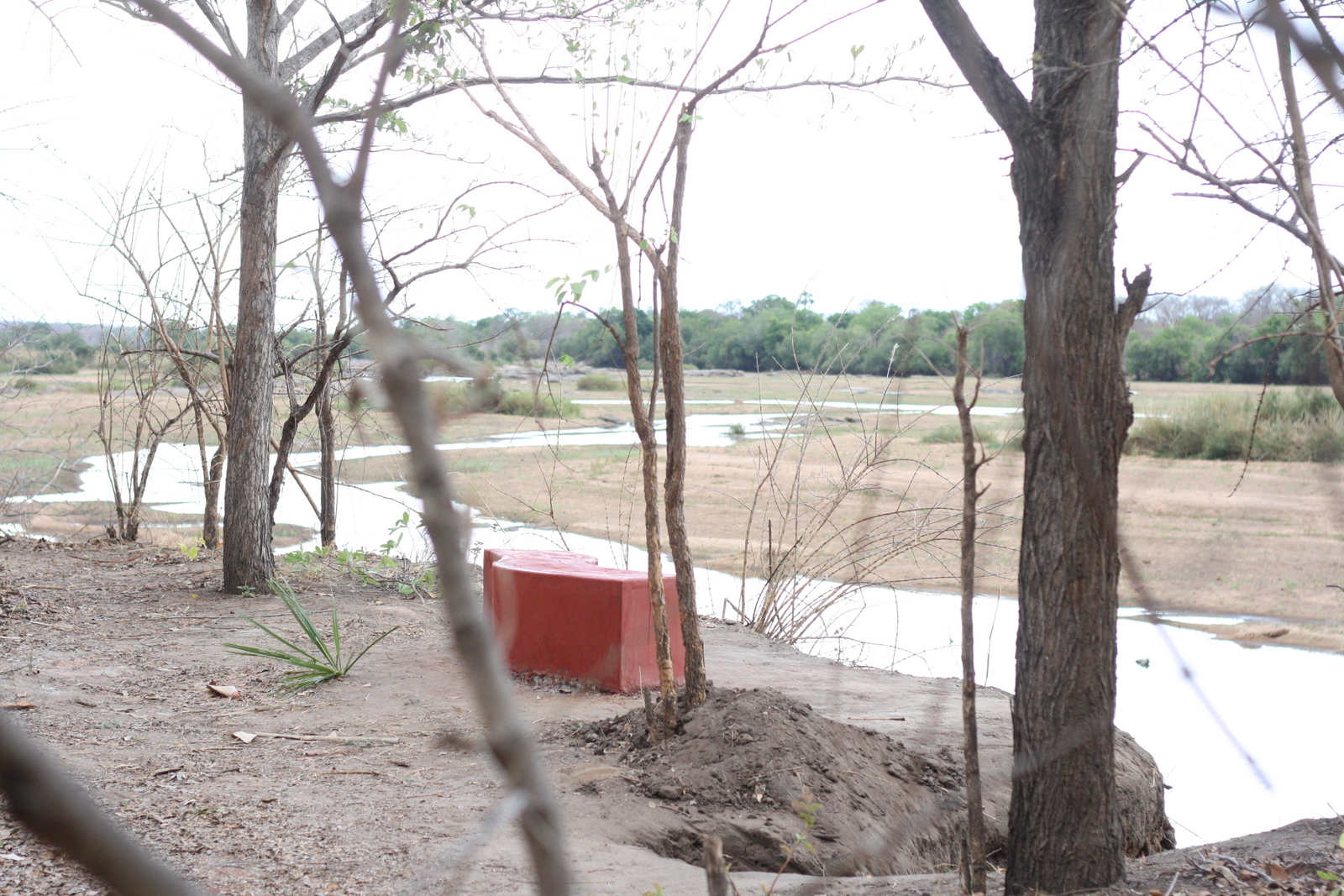
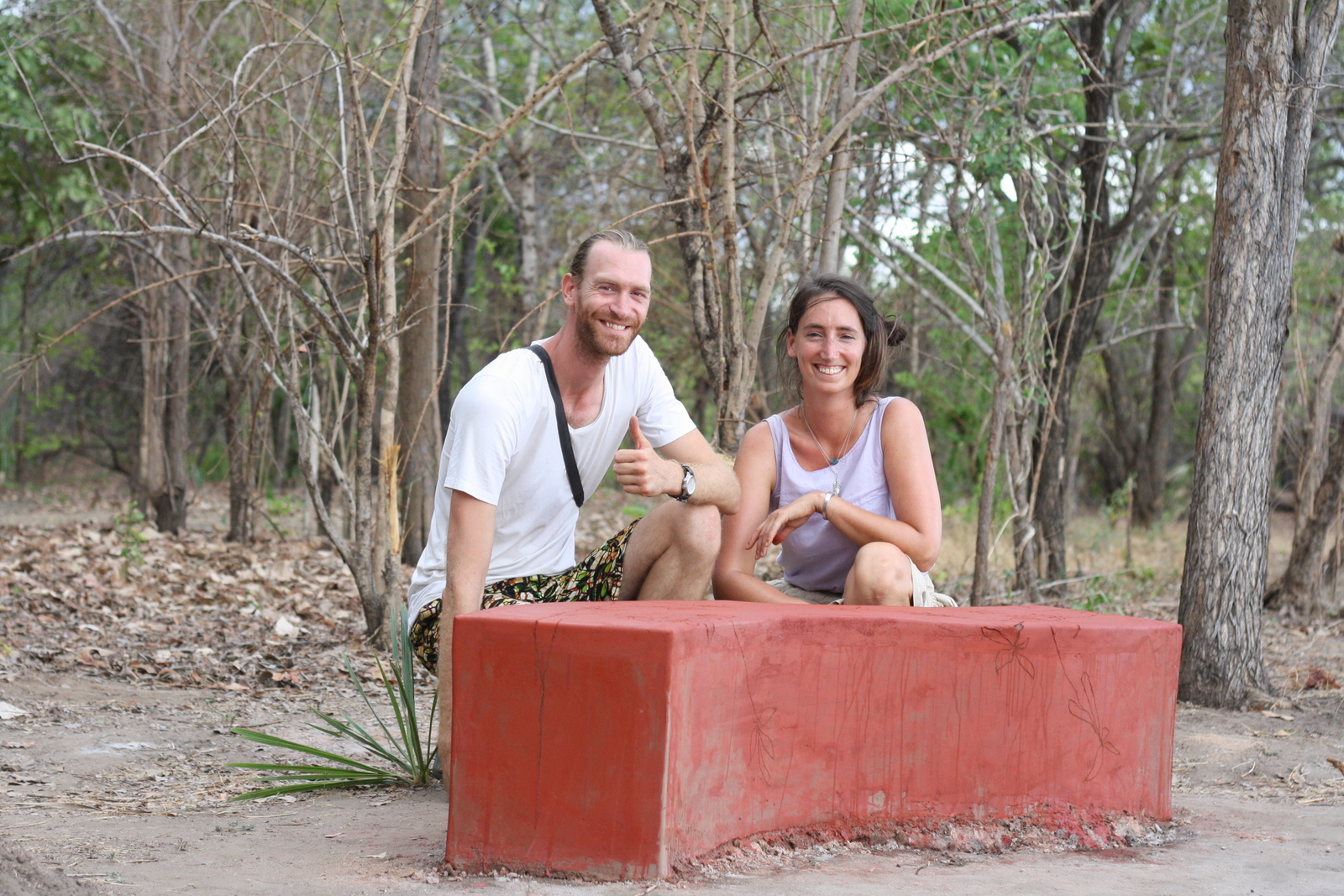
Just before the first rains of the season (that started coming down only moments after this shot!) the bench was finished. We hope workers and visitors of the Mariri Environmental Centre will find the bench a good place to rest and look over the river.
Niassa Lion Project plans to set up a school program where kids can earn points by collecting and stuffing the bottles, which can be used for buying school books and accessories. Our hope is that this leads to more awareness about the value of waste in the village to a point where waste doesn't end up in the streets and fields anymore!

